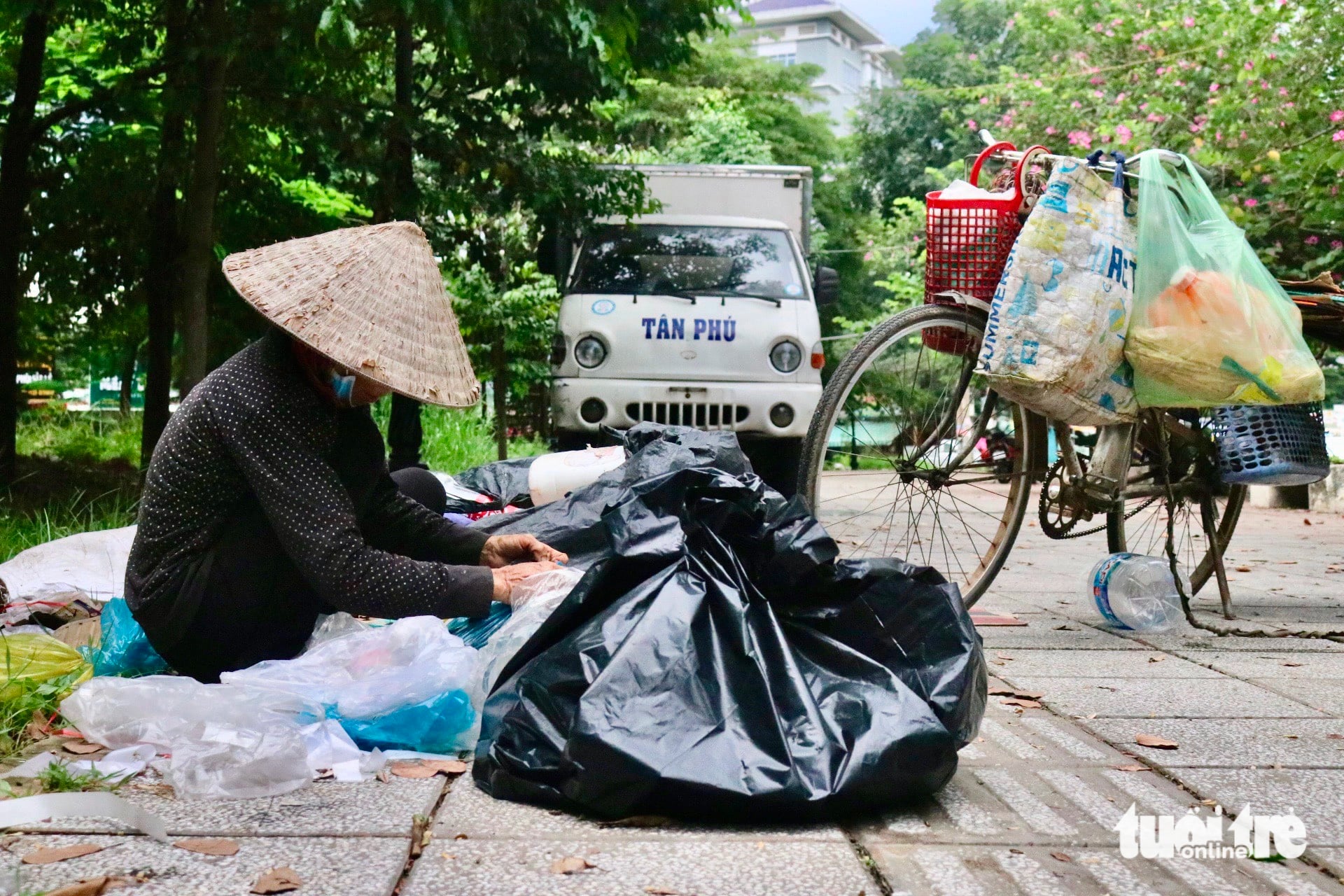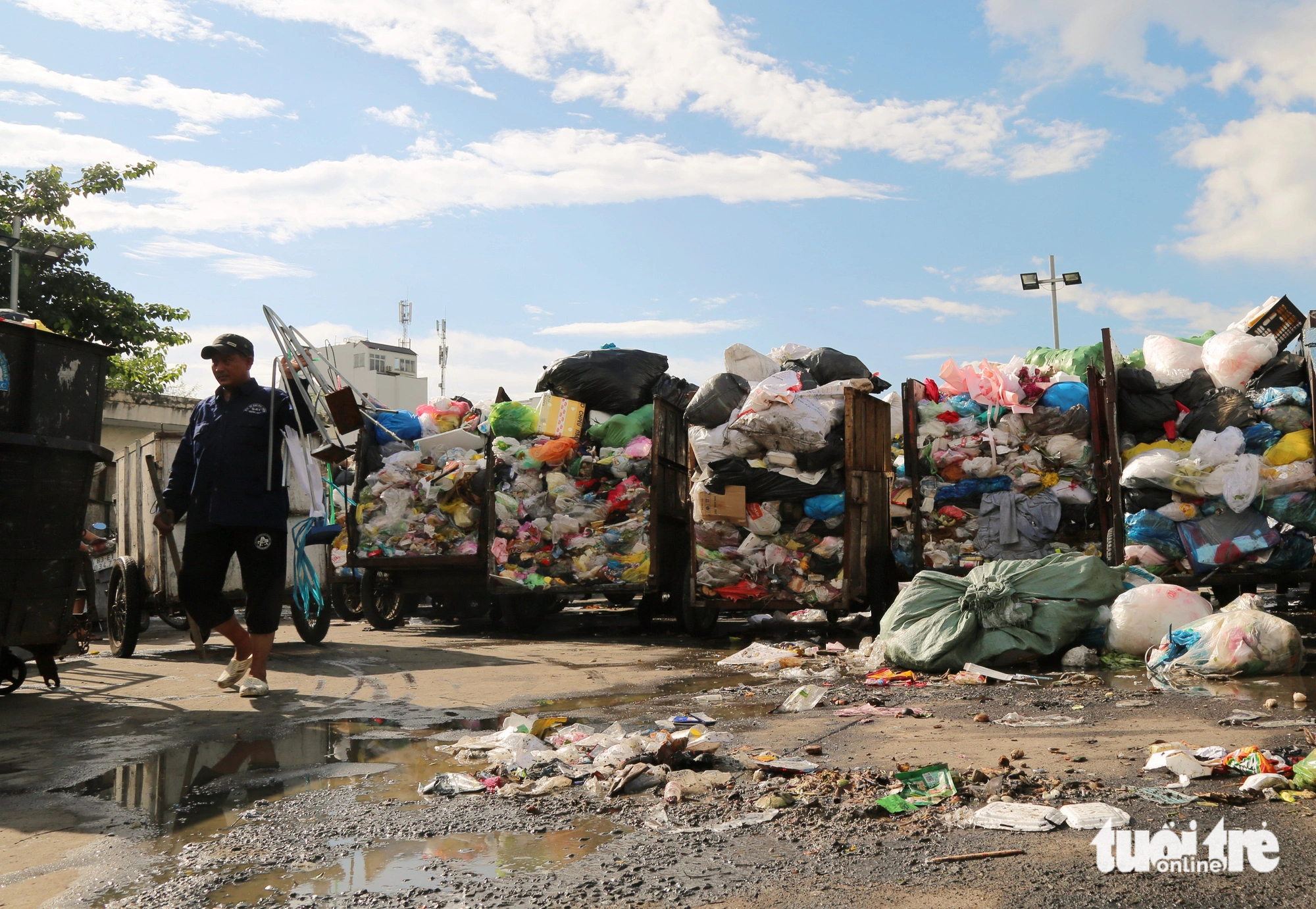“Waste pickers, almost entirely women, do a vital job collecting, transferring, and pre-treating waste. They therefore play a key role in the circular economy,” Country Representative of the International Union for Conservation of Nature (IUCN) in Vietnam Jake Brunner emphasized at a Friday consultation meeting in Hoi An.
“The challenge is to improve their working conditions and connect them to the formal solid waste management system.
“This will require effective waste separation at source, much greater government investment in waste collection and processing, and enforcement of anti-littering rules."
The meeting, titled 'Acknowledge and Promote the Role of Informal Waste Workers (IWWs) in Implementing Extended Producer Responsibility (EPR) and a Global Plastics Treaty,' pointed out the necessity to provide opportunities for IWWs to enhance their livelihoods and transition into the formal waste management system.
This is essential for fostering sustainable plastic circularity and implementing national plans.
The event was held by United Nations Development Program (UNDP) Vietnam, the Gender and Social Inclusion Task Force of the National Plastic Action Partnership (NPAP), and IUCN Vietnam (through the IUCN-PRO Vietnam strategic partnership).
It was attended by the local government authorities, research institutes, NGOs, members of the NPAP’s Gender and Social Inclusion Task Force, the Canadian Embassy in Vietnam, Vietnam EPR Office, Packaging Recycling Organization Vietnam (PRO), businesses, media, and recyclers.
The meeting disclosed 2023 statistics from the Circulate Initiative, a non-profit organization addressing ocean plastic pollution, that approximately 60 percent of global plastic waste is collected and recycled by 20 million informal waste workers.
These people represent some of the most vulnerable and marginalized groups in society.
Meanwhile in Vietnam, the informal sector, where women account for up to 90 percent of the composition, helps collect over 30 percent of recyclable plastic.
It thereby alleviates the financial burden on local cleanliness and has the potential to support a reduction in the waste collection and treatment costs paid by the government.
|
|
| A large volume of used plastic bags at a garbage dump in Binh Thanh District, Ho Chi Minh City. Photo: Tuoi Tre |
The meeting included reports from the Soc Trang Department of Natural Resources and Environment, indicating that the Mekong Delta province has 155 junk shops dedicated to collecting recyclables.
These establishments significantly contribute to the recycling and reuse of plastic waste.
According to Bui Nhu Y, deputy director of the environmental protection office under the Soc Trang Department of Natural Resources and Environment, scrap dealers still face difficulties, as they are vulnerable and have no access to social security.
They need support to have a better life, thereby helping with environmental protection, Y added.
Meanwhile, a 2023 research showed scrap dealers in the central city of Da Nang had unstable income, with earnings averaging VND50,000-300,000 a day, Assoc. Prof. Dr. Kieu Thị Kinh from the Da Nang-based Center for Building and Promoting Sustainable Development said at the meeting.
However, very few of them could earn between VND200,000 and VND300,000, Kinh added. (USD1=VND24,655)
She also mentioned the risks related to labor safety for scrap dealers, namely transporting bulky waste on the streets and working with no protection gear.
She concluded that the collection of recyclable waste concurrently led to a 5-15 percent reduction in the overall volume of solid waste.
Do Thi Thu Trang from the Institute For Interdisciplinary Research in Science and Education in the south-central city of Quy Nhon reported that the city has approximately 700-800 waste pickers and scrap dealers, 70 percent residing within the city, while the remaining live outside its borders.
In her report, Trang emphasized the crucial role played by the force in recyclable collection activities.
However, she noted a deficiency in social recognition of their roles and a lack of networking both among themselves and with the communities.
“The informal sector must be part of any solution and can help producers achieve recycling targets under the EPR system,” remarked Ramla Khalidi, Resident Representative of UNDP Vietnam.
“Beyond informal waste workers, the sector also includes others in the value chain such as scrap dealers, junk shops, aggregators, even semi-informal cooperatives in some provinces.
“Therefore, their voices should be heard and recognized.”
Like us on Facebook or follow us on Twitter to get the latest news about Vietnam!
















































